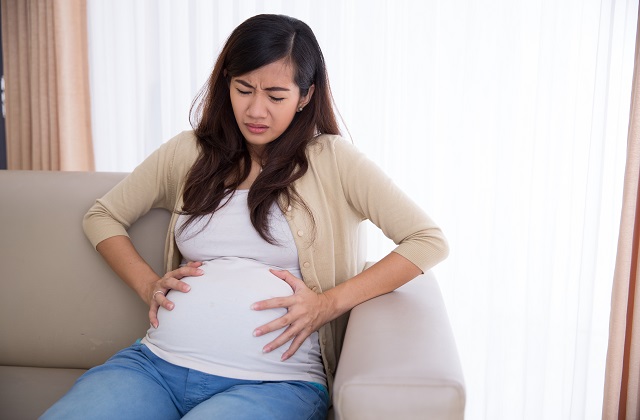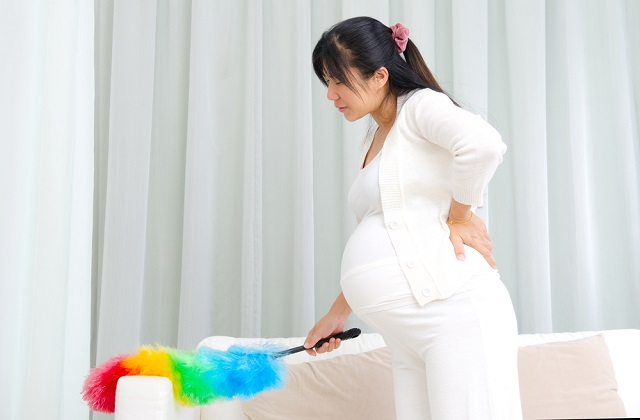Headache During Pregnancy
During pregnancy, you may suffer from headache more often, especially in the first trimester. Most of the times, your headache will go away without any medical treatment. However, in some severe cases, it is recommended that you see the doctor or gynecologist for advice. Furthermore, it is important to note that you should not take any over-the-counter medicine unless advised by your doctor.
Causes of headache during pregnancy
1. The most common cause of headache during pregnancy is the hormonal changes that you are going through.
2. Lack of sleep or general fatigue during pregnancy also causes headache.
3. Tension and emotional stress are also common in causing headache during pregnancy.
Other possible causes of headaches during pregnancy include:
Lack of sleep or fatigue
Sinus congestion
Allergies
Eyestrain
Stress
Depression
Hunger
Dehydration
When should you see the doctor for headache during your pregnancy?
1. Your headache is accompanied by fever.
2. Your headache is accompanied by swelling in the face.
3. Your headache is accompanied by visual change such as blurry vision.
4. Your headache is accompanied by a sudden weight gain.
What can be done for your headache?
If the cause of headache during pregnancy is the hormonal changes in your body, you will probably feel much better in the second trimester when the hormones and blood flow stabilize. However, some women experience headache because of other causes such as the lack of sleep. The following are the other causes which will require you to change your lifestyle so as to prevent headache in your pregnancy.
1. Ensure that you have enough sleep and rest. This is the best way to prevent headache resulting from fatigue. However, do not oversleep because it may result in headache as well.
2. To prevent tension headache, expectant mothers can seek ways to relieve stress. You can take a deep breath for a minute for two regularly. Meditating and prenatal yoga class can also help to relieve your stress and prevent a tension headache. To prevent the buildup of stress, it is important that you relieve stress and anxiety regularly throughout your pregnancy.
3. Drinking coffee may not be good during pregnancy. If you have always drunk a lot of coffee before pregnancy and try cutting back on it now, do it slowly as cutting back on it too fast can also trigger headache or migraine.
4. Eat small meals but frequently. Low blood sugar can also trigger headache. Do not go hungry.
5. Massaging is also an effective way to prevent tension headache. You can go for a professional massage or ask your husband to massage your neck, shoulders and back.
Monitoring your headache
Find out what causes your headache. According to Mayo Clinic (a nonprofit organization committed to clinical practice, education and research), some foods may trigger headache. Thus, it may be a good idea to take note of foods that trigger your headache. The next time you get a migraine or headache, write down everything you ate for the 24 hours prior and what you were doing when it started.
Some common causes of migraine include consuming foods that contain:
Monosodium glutamate (MSG)
Nitrites and nitrates (common in processed meats like hot dogs, salami and bacon)
Artificial sweeteners
Other foods that can cause a headache include:
Certain beans and nuts
Aged cheese and cultured dairy products (like buttermilk and sour cream)
Certain fresh fruits (including bananas, papayas, avocados and citrus fruits)
Smoked fish
Chocolate and carob
Fermented or pickled foods (like soy sauce or sauerkraut)
Other triggers may include:
Glaring or flickering lights
Loud noises
Excessive heat or coldness
Strong odors
Tobacco smoke
How can you alleviate the headache?
1. Use a compress. For a tension headache, apply a warm or cool compress to your forehead or the base of your skull. Cold compresses tend to work best for migraines.
2. Take a shower. For some migraine sufferers, a cold shower brings fast – even if temporary – relief. If you cannot take a shower, splash some cool water on your face. A warm shower or bath can help soothe tension headaches.
3. Do not go hungry or thirsty. To prevent low blood sugar (a common trigger of headache), eat small meals frequently. When you are on the go, take along some snacks (such as crackers, fruit, yogurt) with you. Avoid straight sugar such as candy or soda which can make your blood sugar spike and crash.
4. Do not forget to drink plenty of water to stay hydrated. Sip the water slowly if you have vomited from a migraine.
5. Prevent fatigue by getting plenty of sleep at night. When you are having a migraine, sleep in a quiet and dark room.
6. Exercise. Research has shown that regular exercise can reduce the frequency and severity of migraines and also reduce the stress that can cause tension headaches. If you are prone to migraines, get started slowly – a sudden burst of activity could trigger one. Also, do not exercise once a migraine has started because it will aggravate the headache.
7. Exercises that help you maintain good posture may be especially helpful with headaches during the third trimester.
8. You can also try relaxation techniques. For example, biofeedback, meditation, yoga and self-hypnosis may be helpful in reducing stress and headaches in some sufferers.
9. Get a massage. Some women who suffer from tension headaches swear by massage, although it is unclear whether it is effective in preventing or relieving headaches. A full-body massage (ideally from a therapist who specializes in prenatal massage) can release the tension in your neck, shoulders, and back muscles.
If a professional massage is not an option, your partner can do simple massage on your back and head.
It takes a village to raise a child !
Join our Facebook Group For 2025 SG Mummies or Facebook Group For 2024 SG Mummies
2024 SG Mummies Whatsapp Group by EDD Month or 2025 SG Mummies Whatsapp Group By EDD Month










